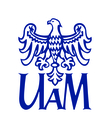Lecture: Obstacles for intergenerational language transmission. The case of Talysh in Azerbaijan

Talysh is a language of an ethnic group that forms a significant minority in Azerbaijan. The number of speakers has been estimated from 100.000 up to 1 million according to different sources (ACCORD 2017). Transmission of linguistic knowledge and skills between generations is crucial for maintaining and developing a language and culture. Detailed studies of individual families can reveal difficulties and challenges of this process (cf. Chessa, 2010). This paper reports on a multilingual family of Talysh origin in Azerbaijan, where Talysh is used by the elder and middle generation alongside Azerbaijani and/or Russian. Semi-structured interviews were conducted with family members representing four generations (1st - born between 1946 to 1964; 2nd – 1965-1980; 3rd -1981-1996; 4th – 1997-2012). In this family, transmission of Talysh was mainly interrupted after the 1990s. The participants were divided into two groups: those who know or knew the Talysh language to some extent, and those who do not. Questions discussed in the interviews include the importance of Talysh identity and the Talysh language in a person's life, preferences of language use in various situations, and motives behind language choice. Questions were adapted for each generation group accordingly. The main obstacles for maintaining Talysh as a language within the family were identified as (i) the dominance of other languages in society, (ii) limited opportunities of communicating in the Talysh language (middle generation) and limited exposure to the language (younger generations), (iii) limited resources for the education of younger generations. The results confirm findings of prior studies (e.g. Clifton 2005; 2008). In addition, the study also revealed the importance of individual factors and psychological reasons, which however were often not pronounced during the interviews but in informal conversations preceding or following the interviews. Therefore, it should be taken into consideration that even when the researcher is a member of the family being interviewed, their responses are likely to be disingenuous. These findings may prompt the development of additional approaches and strategies in family policy research.
Talysh is a language of an ethnic group that forms a significant minority in Azerbaijan. The number of speakers has been estimated from 100.000 up to 1 million according to different sources (ACCORD 2017). Transmission of linguistic knowledge and skills between generations is crucial for maintaining and developing a language and culture. Detailed studies of individual families can reveal difficulties and challenges of this process (cf. Chessa, 2010). This paper reports on a multilingual family of Talysh origin in Azerbaijan, where Talysh is used by the elder and middle generation alongside Azerbaijani and/or Russian. Semi-structured interviews were conducted with family members representing four generations (1st - born between 1946 to 1964; 2nd – 1965-1980; 3rd -1981-1996; 4th – 1997-2012). In this family, transmission of Talysh was mainly interrupted after the 1990s. The participants were divided into two groups: those who know or knew the Talysh language to some extent, and those who do not. Questions discussed in the interviews include the importance of Talysh identity and the Talysh language in a person's life, preferences of language use in various situations, and motives behind language choice. Questions were adapted for each generation group accordingly. The main obstacles for maintaining Talysh as a language within the family were identified as (i) the dominance of other languages in society, (ii) limited opportunities of communicating in the Talysh language (middle generation) and limited exposure to the language (younger generations), (iii) limited resources for the education of younger generations. The results confirm findings of prior studies (e.g. Clifton 2005; 2008). In addition, the study also revealed the importance of individual factors and psychological reasons, which however were often not pronounced during the interviews but in informal conversations preceding or following the interviews. Therefore, it should be taken into consideration that even when the researcher is a member of the family being interviewed, their responses are likely to be disingenuous. These findings may prompt the development of additional approaches and strategies in family policy research.
References
ACCORD (2017) The Talysh in Azerbaijan: Language and culture. Accessed 13 June 2020. https://accord.org.uk/resources/talysh-azerbaijan-language-culture/
Clifton, John M. (2008) Do the Talysh and Tat languages have a future in Azerbaijan? Work Papers of the Summer Institute of Linguistics, University of North Dakota Session: Vol. 49, Article 2.
Clifton, John M. (2005) Sociolinguistic situation of the Talysh in Azerbaijan. SIL International
Chessa, Enrico. (2010) Another case of language death? The intergenerational transmission of Catalan in Alghero. Doctoral thesis. University of London.
Info
Day:
2023-05-28
Start time:
12:10
Duration:
00:30
Room:
IG 0.454
Track:
Sociolinguistics
Links:
Feedback
Click here to let us know how you liked this event.
Concurrent Events
Speakers
 |
Roya |